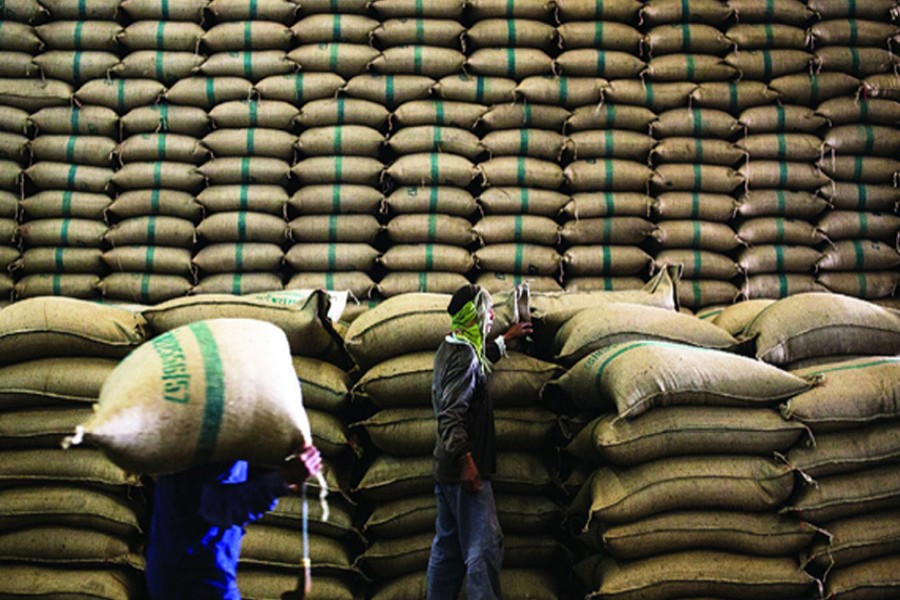Overall imports fell by over 7.0 per cent or US$294.53 million in August despite big emergency rice buy from abroad.
One obvious reason cited by sources is that lower imports for industries tipped the balance a little bit.
The settlement of letters of credit (LC), generally known as actual import, came down to $3.75 billion in August 2017 from $4.05 billion a month before, according to the central bank's latest statistics.
In August 2016, the actual imports were worth $3.43 billion.
"The overall imports decreased slightly during the period under review mainly due to lower import of capital machinery and back-to-back imports for readymade garment (RMG) accessories," a senior official of the Bangladesh Bank (BB) told the FE Monday.
He also said the upward trend in food-grain import, practically rice import, may continue in the coming months to keep the price of the main staple stable in the local markets through boosting its supply.
Both the government and the central bank have already taken different measures to encourage the importers to import more rice to meet a growing demand for the essential item.
The rice import increased by 21.24 per cent or $14.79 million to $84.42 million during the period from $69.63 million a month ago. It was only $1.26 million in August 2016.
In August last, rice imports through private sector cost $84.27 million while the staple imports by the public sector amounted to $0.16 million, the BB data showed.
The overall import may rise in the coming months as the opening of fresh LCs increased significantly last month (August), the central banker hinted.
The opening of fresh LCs, generally known as import orders, rose by 8.21 per cent or nearly $387 million to $5.10 billion this past August from $4.71 billion in July 2017. It was $3.81 billion in August last year.
However, the back-to-back import of RMG accessories dropped by nearly 31 per cent or $286.04 million to $637.66 million in the month of August from $923.70 million in July despite higher export earnings from the apparel products.
Earnings from readymade garments covering both knitwear and woven increased by more than 14 per cent to $5.52 billion during the July-August period of the ongoing fiscal year (FY) 2017-18 from $4.84 billion in the same period of the last fiscal.
Bangladesh earned $2.86 billion from knitwear export during the period under review, which marked an increase of 16.02 per cent compared to that of $2.47 billion in the same period a year ago.
The earnings from woven garments in the first two months of FY18 grew by 11.99 per cent to $2.65 billion, from $2.37 billion in the same period of the last fiscal, according to the official figures.
On the other hand, import of capital machinery -- industrial equipment used for production - dropped by nearly 37 per cent or $127.75 million to $220.18 million during the period under review as against $347.93 million in July 2017.
Talking to the FE another BB official said the imports of capital machinery may rebound in the coming months following implementation of different infrastructures alongside mega- projects in Bangladesh.
Currently, the government is implementing nine projects under a Fast Track Project Monitoring Committee, headed by Prime Minister Sheikh Hasina.


